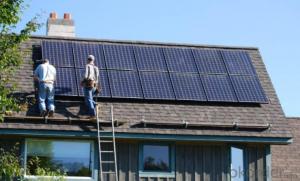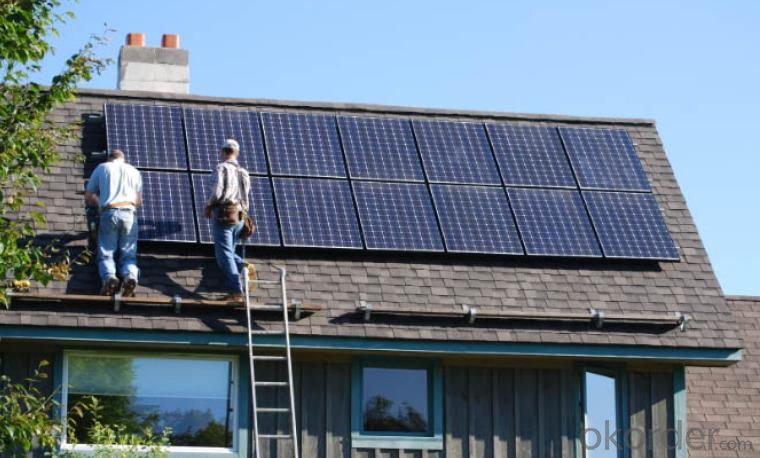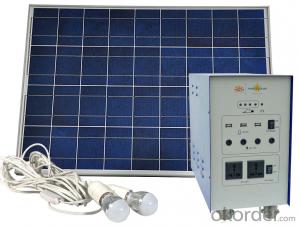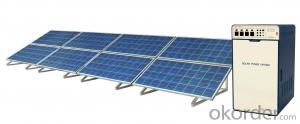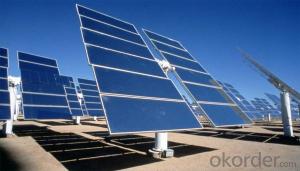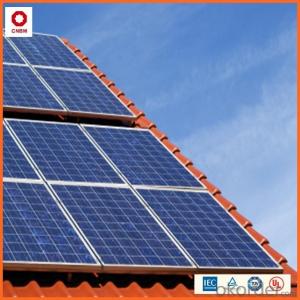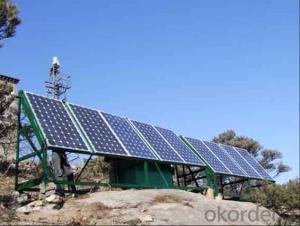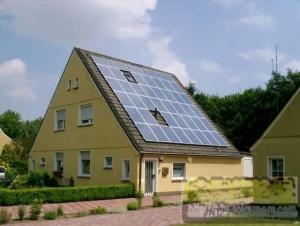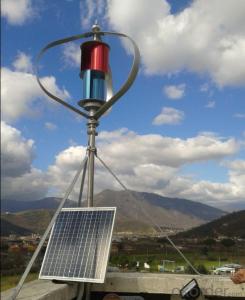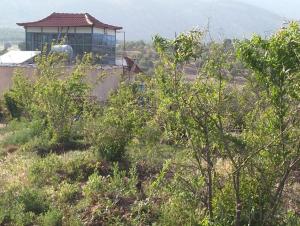Off-Grid Solar Power System 1000W High Efficiency
- Loading Port:
- China main port
- Payment Terms:
- TT OR LC
- Min Order Qty:
- 1 pc
- Supply Capability:
- 10000 pc/month
OKorder Service Pledge
OKorder Financial Service
You Might Also Like
1.Description of Product
Off-Grid Solar Power System is consisted of solar panel, solar charge controller, inverter, battery, mounting rack and cables.
(1).Grid-connected, send power to city grid
(2).MPPT technology, wide range of working voltage
(3).Simply Wiring, easy installation, customized design for your projects
(4).Low investment & long term feedback
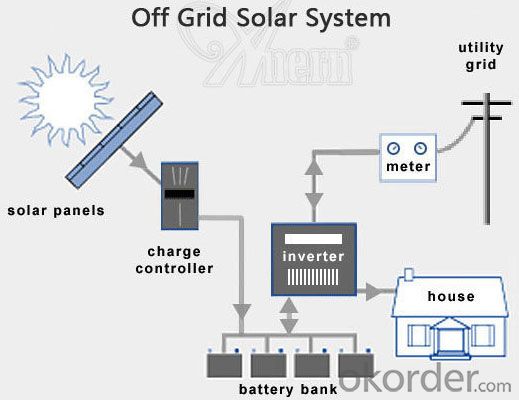
2. Off-Grid Features
1. Off grid solar power system is mainly used for application with relatively-small power consumption, and the areas have no grid network coverage, or grid power is unstable or outage condition.
2. It’s composed of solar panels, hybrid solar inverter, battery bank, solar panel mounting racks, and other accessories required fora complete home solar power system.
3. The battery bank gives a stable power output to the solar inverter which converts DC to AC to power loads, and provides power backup in rainy or cloudy days.
4. The solar panels generate electricity at daytime and charge the battery bank .
5. The off grid home solar power system provides grid power bypass in case of battery power shortage when sunshine is not enough.
6. All the off grid home solar power system configurations are worked out by scientific calculation and design.
Ref No. | 1KW |
Solar Panel | Type: Monocrystalline Silicon PV Module Max Power: 250W QTY:3 pcs |
Controller-Inverter Integrator | Rated Ouput Power: 1000W Rated DC Voltage: 24V QTY:1 pcs |
Battery | 12V/150AH per piece QTY:4 pcs |
Solar Panel Rack | Roof type mounting rack, anodized aluminum material, including complete fittings (Other type of racks can be customized as per client's requirement) QTY:1 pcs |
Cables | International standard, with specification suitable for solar system, RVV2*6 QTY:20m |
3.The Pictures of Product
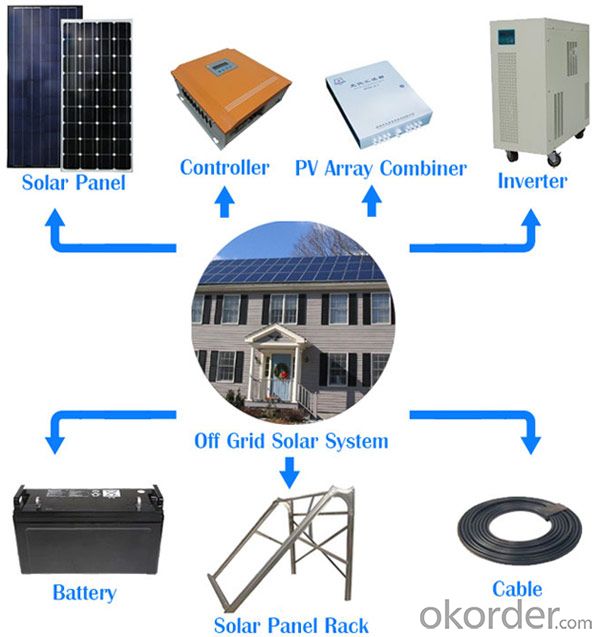
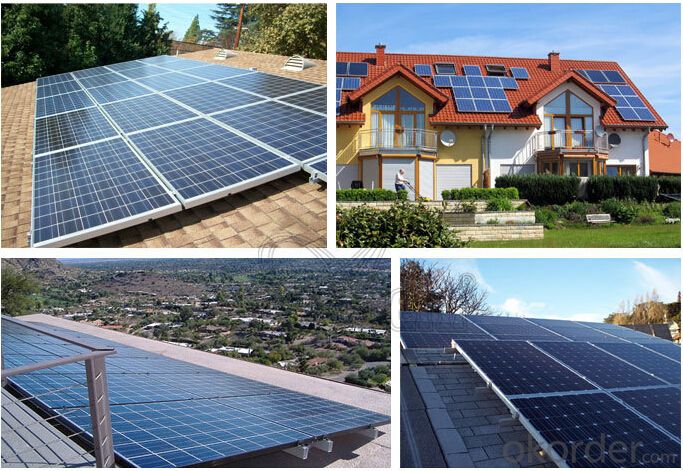
4.FAQ
Q1: What is the business type for the company?
A1: We are one of the biggest manufacturers inBejing.Chnia. Which is a high tech PV enterprise dedicated to the research, development, production and sales..
Q2: How long solar panel warranty can you offer?
A2: 10-Year product warranty,25-year linear power output warranty
If there is any quality problem, we will pay for freight and send free parts to you.
Q3: How many certificates do you have?
A3: We have 16 certificates,such as CE, TUV, UL, and so on.
Q4: Can I be the agent for you?
A4: Yes,We can discuss some information.
Q5: How to get a sample?How can cooperation with us
A5: contact us now.
- Q: Can solar energy systems be installed on parking lots or carports?
- Yes, solar energy systems can definitely be installed on parking lots or carports. These locations provide ample space and exposure to sunlight, making them ideal for generating solar power. By installing solar panels on these structures, parking lots and carports can not only provide shade for vehicles but also generate clean and renewable energy.
- Q: How do solar energy systems impact electricity bills?
- Solar energy systems can have a significant impact on electricity bills by reducing or even eliminating the need for traditional grid electricity. By harnessing the power of the sun, these systems generate clean and renewable energy, which can offset a substantial portion of a household's electricity consumption. This can result in lower monthly bills or, in some cases, provide excess energy that can be sold back to the grid, further reducing overall costs.
- Q: Can solar energy systems be used in powering data centers?
- Yes, solar energy systems can be used to power data centers. In fact, many data centers around the world are adopting solar energy as a sustainable and renewable source of power. The abundance of sunlight in many regions makes solar energy an attractive option for powering energy-intensive facilities like data centers. Solar energy systems consist of solar panels that convert sunlight into electricity. These panels can be installed on the rooftops or surrounding areas of data centers to generate clean and green energy. The electricity produced can be used to power various operations within the data center, including servers, cooling systems, and lighting. One major advantage of using solar energy in data centers is the potential for cost savings. By generating their own electricity, data centers can reduce their reliance on the grid and lower their energy bills. Additionally, some regions offer incentives and tax benefits for investing in renewable energy sources, further reducing the financial burden. Moreover, solar energy systems can contribute to the overall sustainability of data centers. By utilizing a renewable energy source, data centers can significantly reduce their carbon footprint and environmental impact. This aligns with the growing global focus on reducing greenhouse gas emissions and combating climate change. However, it is important to consider the scalability and reliability of solar energy systems when powering data centers. Data centers consume large amounts of power and require a consistent and uninterrupted energy supply. To address this, data centers can incorporate energy storage solutions, such as batteries, to store excess energy generated during the day and use it during periods of low sunlight or high demand. In conclusion, solar energy systems can indeed be used to power data centers. They offer a sustainable and cost-effective alternative to traditional energy sources, while also contributing to environmental conservation. As the demand for data centers continues to grow, the integration of solar energy can play a significant role in creating a more sustainable and resilient digital infrastructure.
- Q: Can solar energy systems be installed on rooftops?
- Yes, solar energy systems can be installed on rooftops. In fact, rooftop installations are one of the most common and effective ways to harness solar energy for residential, commercial, and industrial purposes.
- Q: What are the benefits of using solar energy systems?
- There are several benefits of using solar energy systems. Firstly, solar energy is a renewable and sustainable source of power, meaning it will never run out. Secondly, solar energy is clean and does not produce harmful greenhouse gas emissions, making it environmentally friendly. Additionally, using solar energy can help reduce electricity bills as it allows homeowners and businesses to generate their own electricity. Solar energy systems also require minimal maintenance and have a long lifespan, providing a reliable and cost-effective energy solution. Overall, utilizing solar energy systems contributes to a greener future, cost savings, and energy independence.
- Q: How much does it cost to install a solar energy system?
- The cost of installing a solar energy system can vary depending on several factors such as the size of the system, location, and specific project requirements. On average, residential solar installations can cost anywhere between $15,000 to $25,000 or more. However, it's important to note that there are also various financial incentives, tax credits, and financing options available that can help offset the initial cost and make solar energy more affordable for homeowners and businesses.
- Q: Can solar energy systems be used in powering theme parks or water parks?
- Yes, solar energy systems can definitely be used to power theme parks or water parks. Solar energy is a clean and renewable source of power that can provide a sustainable and cost-effective solution for meeting the energy needs of these establishments. Theme parks and water parks require a significant amount of electricity to operate attractions, lighting, water pumps, and other facilities. Installing solar panels can help reduce their reliance on conventional energy sources and decrease their carbon footprint. The large open spaces available in theme parks and water parks are ideal for installing solar panels, which can be mounted on rooftops, carports, or ground-mounted arrays. Solar energy systems can generate electricity by converting sunlight into usable energy through photovoltaic (PV) panels. These panels can be integrated into the infrastructure of the park discreetly and efficiently. The energy generated during the day can be used immediately to power rides, lighting, and other equipment, and any excess energy can be stored in batteries for use during periods of low sunlight or at night. Furthermore, solar energy systems can provide a reliable source of power and reduce the vulnerability of theme parks and water parks to power outages or disruptions in the grid. This is particularly important in areas prone to extreme weather events. By incorporating backup battery storage systems, solar energy can provide a constant and uninterrupted power supply even during emergencies. In addition to the environmental and reliability benefits, solar energy systems can also provide long-term cost savings for theme parks and water parks. While the initial installation cost might be higher, the operational costs are significantly reduced as the sun provides free and abundant energy. Over time, the savings on electricity bills can offset the initial investment, resulting in substantial cost savings for the park's owners. Overall, solar energy systems have the potential to revolutionize the power supply of theme parks and water parks. By harnessing the sun's energy, these establishments can not only reduce their environmental impact but also achieve long-term cost savings and enhanced energy reliability.
- Q: Can solar energy systems be used in residential apartments or multi-story buildings?
- Yes, solar energy systems can be used in residential apartments or multi-story buildings. They can be installed on rooftops or other available spaces to harness sunlight and generate electricity for individual units or shared common areas. These systems can help reduce energy costs, promote sustainability, and provide an environmentally-friendly source of power for residential complexes.
- Q: Can solar energy systems be connected to the grid?
- Yes, solar energy systems can be connected to the grid. This is known as grid-tied or grid-connected solar power. When a solar energy system is connected to the grid, it allows for the excess electricity generated by the system to be sent back to the grid, while also drawing power from the grid when the solar panels are not producing enough electricity. This grid connection enables homeowners and businesses to benefit from net metering, where they receive credits for the excess electricity they supply to the grid, resulting in reduced energy costs.
- Q: How does the cleanliness of solar panels affect their performance?
- The cleanliness of solar panels has a significant impact on their performance. When solar panels are dirty or covered in dust, dirt, or any other debris, it reduces their ability to absorb sunlight efficiently. This results in a decrease in the amount of electricity generated by the panels. Dirt and dust particles on solar panels create a layer that blocks sunlight from reaching the photovoltaic cells. This obstruction prevents the panels from converting sunlight into electricity effectively. As a result, the output of electricity decreases, and the overall performance of the solar panels is affected. Regular cleaning and maintenance of solar panels are essential to maintaining their optimal performance. By keeping the panels clean, you allow maximum sunlight to reach the cells, ensuring efficient energy conversion and higher electricity production. This is particularly important in areas with high levels of dust, pollen, or other airborne particles. Moreover, dirty solar panels can also lead to additional issues. Accumulated dirt can trap heat on the surface of the panels, causing them to overheat. This can potentially damage the panels and reduce their lifespan. Additionally, if the dirt or debris is not cleaned promptly, it can corrode the surface of the panels or create scratches, further affecting their performance and longevity. To maintain the cleanliness of solar panels, it is recommended to clean them regularly, especially in dusty or polluted environments. This can be done using a soft brush or sponge with water and mild detergent, ensuring not to scratch the surface. In some cases, automated cleaning systems or specialized solar panel cleaning services may be used for larger installations. In conclusion, the cleanliness of solar panels directly affects their performance. By keeping them free of dirt and debris, you can maximize their ability to absorb sunlight, leading to increased electricity production and improved efficiency. Regular cleaning and maintenance are crucial to ensure optimal performance and longevity of solar panels.
Send your message to us
Off-Grid Solar Power System 1000W High Efficiency
- Loading Port:
- China main port
- Payment Terms:
- TT OR LC
- Min Order Qty:
- 1 pc
- Supply Capability:
- 10000 pc/month
OKorder Service Pledge
OKorder Financial Service
Similar products
Hot products
Hot Searches
Related keywords
